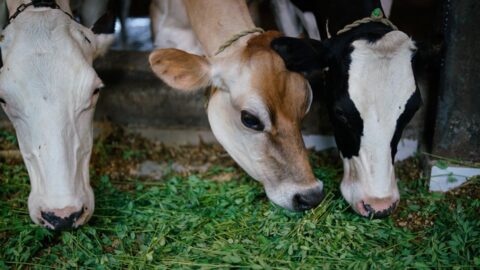The Moral Imperative of Global Warming for Religion
 This post is by Sheryl Canter, an online writer and editorial manager at Environmental Defense Fund.
This post is by Sheryl Canter, an online writer and editorial manager at Environmental Defense Fund.
There was a great editorial in Sunday’s Waco Tribune. It starts like this:
It takes quite a leap of faith to see Texas as a national leader in global warming solutions.
But if there’s anything Texas has plenty of, it’s faith – from Protestant evangelical fervor to contemplative Catholic spirituality to Eastern mysticism and beyond.
And in growing numbers, communities of faith across Texas are moving by leaps and bounds to respond to the moral imperative of global warming.
The description of the progress and action in Texas is heartening, and it’s not just happening in Texas. The author, Bee Moorhead, is executive director of the Texas arm of Interfaith Power & Light (IPL), an interfaith ministry that includes 26 states and over 4000 congregations.
Sally Bingham, president of IPL and a member of the EDF Board of Trustees, wrote in a blog post last fall that climate change is the "most serious moral issue of our time" and an opportunity to put faith into action:
Voices from many religious traditions have started speaking out about climate change. Clergy are taking on what is a new idea for us: putting faith into action. We’re no longer just praying in the pews for a reverence for the Earth, or praising God for all the wonder and beauty created so that we might live. We’re taking our religious faith and walking the halls of legislative buildings, meeting with lawmakers, and conversing about the moral implication of inaction.
IPL isn’t the only religious group concerned about climate change. Last year, our then chief scientist, Bill Chameides, spoke at a hearing sponsored by the Catholic Coalition of Climate Change. The goal of the hearing (and others like it across the country) was to devise a Catholic response to climate change. Bill wrote:
Our host, Bishop Thomas G. Wenski, said that three themes from Catholic social teaching inform the theology of climate change: priority for the poor, pursuit of the common good, and practice of prudence. The poor will suffer the most from the effects of climate change, and humanity needs to make sure their needs are not forgotten. Passing on the gift of creation to future generations, without doing irreversible harm, is an aspect of serving the common good. The practice of prudence demands that we act thoughtfully but with urgency to halt further climate disruption.
Climate change isn’t an issue for the right or the left – it’s an issue for humanity.











